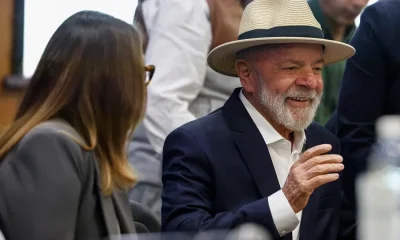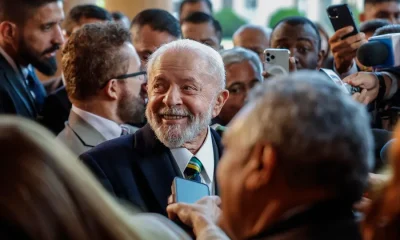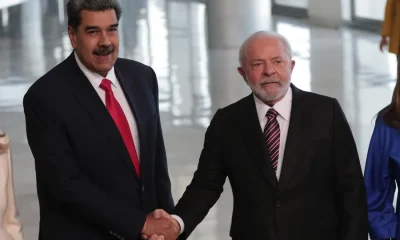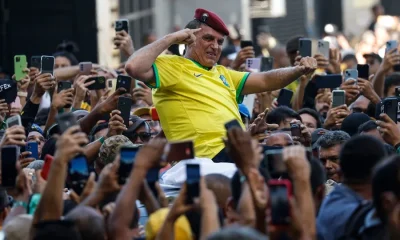International
Tough choices as Brazil’s Lula gets down to business
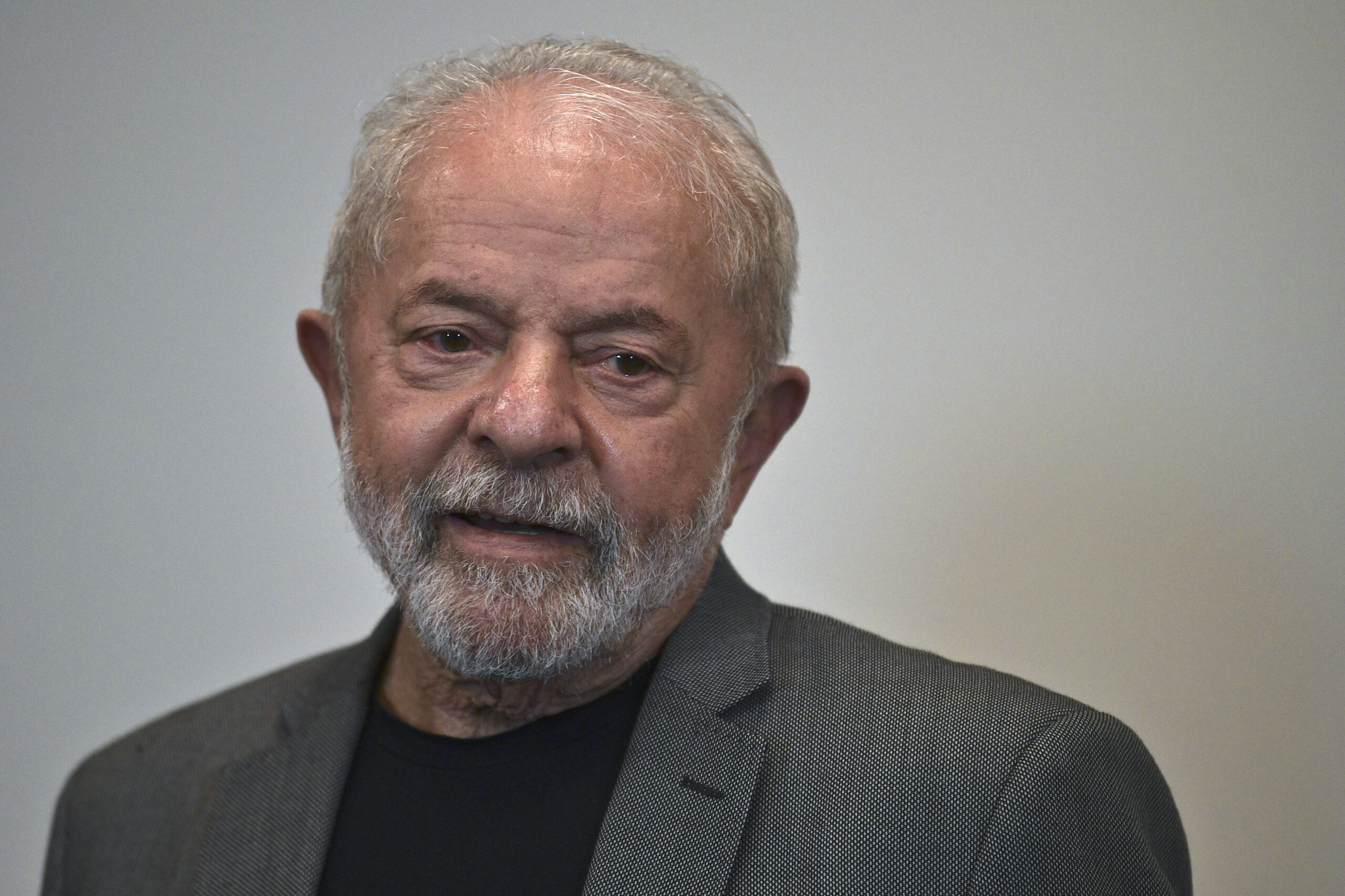
| By AFP | Marcelo Silva De Sousa
Fresh off a celebratory beach holiday, Brazilian president-elect Luiz Inacio Lula da Silva got down to uglier business Monday: figuring out how to govern with a hostile Congress, nasty budget crunch and impossible-looking to-do list.
The political horse-trading of the transition period now starts in earnest for the veteran leftist, who will be sworn in for a third term on January 1, facing a far tougher outlook than the commodities-fueled boom he presided over in the 2000s.
Lula, 77, celebrated his narrow win over far-right incumbent Jair Bolsonaro in the October 30 runoff election by escaping last week to the sun-drenched coast of Bahia in northeastern Brazil.
He joked he needed a belated honeymoon with his first-lady-to-be, Rosangela “Janja” da Silva, whom the twice-widowed ex-metalworker married in May.
His other honeymoon — the political one — could be short, analysts say.
Lula is meeting Monday with advisers in Sao Paulo. On Tuesday, he will travel to the capital, Brasilia, to finish assembling his 50-member transition team and start negotiating with members of Congress, two allies told AFP.
He faces a battle to get bills passed in a legislature where conservatives scored big gains in October’s elections.
Lula’s coalition has around 123 votes in the 513-seat Chamber of Deputies, and 27 in the 81-seat Senate, meaning he will have to strike alliances to get anything done — and even just survive, given the threat of impeachment in Brazil, where two presidents have been impeached in the past 30 years.
Into the shark tank
Lula is expected to meet in Brasilia with lower-house speaker Arthur Lira, a key Bolsonaro ally from the loose coalition of parties known as the “Centrao,” a group known for striking alliances with whoever is in power — in exchange for feeding on the federal pork barrel.
Lula will be under pressure from the Centrao not to oppose the so-called “secret budget”: 19.4 billion reais ($3.8 billion) in basically unmonitored federal funding that Bolsonaro agreed to allocate to select lawmakers to boost support for his reelection bid.
Meanwhile, money will be tight for Lula’s campaign promises, including increasing the minimum wage and maintaining a beefed-up 600-reais-per-month welfare program, “Auxilio Brasil.”
Bolsonaro, who introduced the program, did not allocate sufficient funding to continue it in the 2023 budget.
“We can’t start 2023 without the ‘Auxilio’ and a real increase in the minimum wage,” the leader of Lula’s Workers’ Party, Gleisi Hoffmann, said Friday.
“That’s our contract with the Brazilian people.”
Facing the impossible math of funding such pledges without breaking the government spending cap, Lula’s allies are exploring their options, including passing a constitutional amendment allowing exceptional spending next year.
But they are racing the clock: it would have to be approved by December 15.
Markets watching
Lula, who ran on vague promises of restoring Latin America’s biggest economy to the golden times of his first two terms (2003-2010), faces a bleaker picture this time around.
“The challenge is… how to balance fiscal responsibility with a highly anticipated social agenda,” in the face of high inflation and a possible global recession, said political scientist Leandro Consentino of Insper university.
Markets are watching closely — especially his pick for finance minister.
Lula is expected to split Bolsonaro’s economy “super-ministry” into three portfolios: finance, planning, and trade and industry.
Analysts predict a political choice for finance minister, a technocrat for planning and a business executive for trade.
Names floated for the finance job include Lula’s former education minister Fernando Haddad and his campaign coordinator, Aloizio Mercadante.
COP27 stage
Other closely watched portfolios are the environment and a promised new ministry of Indigenous affairs — both sore spots under Bolsonaro, who presided over a surge of destruction in the Amazon rainforest.
The former job could go to Lula’s one-time environment minister Marina Silva, credited with curbing deforestation in the 2000s.
In a key gesture, the president-elect will make his return to the international stage at the COP27 UN climate summit in Egypt, where he will arrive on November 14, advisers said.
Silva, who will travel with him, told newspaper Folha de Sao Paulo: “The climate issue is now a strategic priority at the highest level.”
International
MEPs Approve Plan That Could Fast-Track Rejection of Some Asylum Claims
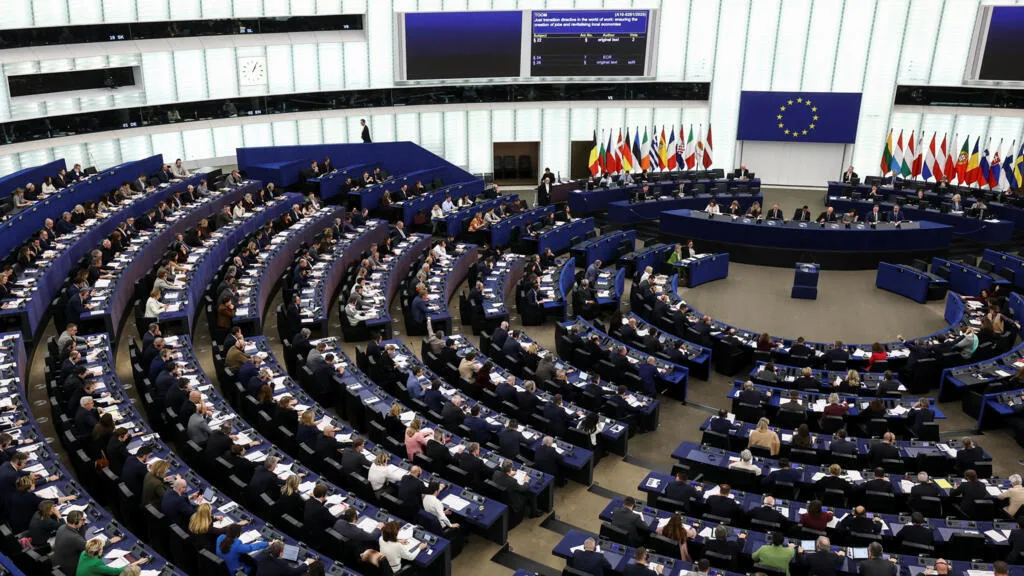
With an overwhelming majority of 408 votes in favor, the European Parliament backed the creation of a list of safe countries of origin for asylum seekers.
People coming from Colombia, Egypt, India, Bangladesh, Kosovo, Morocco and Tunisia who apply for asylum in the European Union could see their requests rejected on the grounds that the bloc’s 27 member states consider those nations safe. Applicants would have to prove their individual circumstances, showing evidence of persecution or specific risks if they were to return.
At the same time, while their applications are processed or their return is arranged, migrants could be transferred to third countries outside the EU if the bloc has an agreement with them, if the individuals previously transited through those nations, or if they have family or cultural ties there. The measure provides legal cover for the creation of processing centers beyond EU territory, similar to an initiative previously pursued by Italian Prime Minister Giorgia Meloni in Albania.
Tuesday’s vote reflects the tightening of European migration policy in recent years, despite asylum applications having fallen by more than 20% last year and the issue not ranking among citizens’ top concerns, according to recent surveys.
International
Chile Unveils Latam-GPT to Give Latin America Its Own AI Model
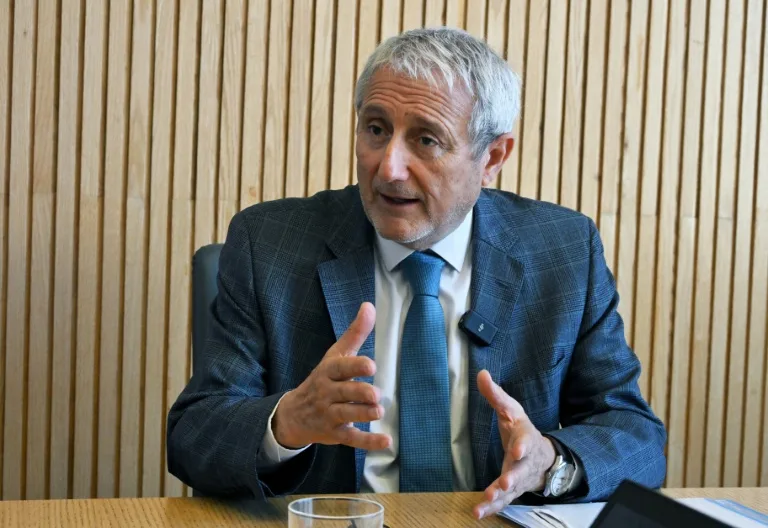
Chile on Tuesday launched Latam-GPT, an initiative aimed at providing Latin America with its own artificial intelligence model in a field largely dominated by U.S. companies, while seeking to reduce biases identified in existing systems.
The project is led by Chile’s National Center for Artificial Intelligence (CENIA), a private corporation funded with public resources.
Latam-GPT is backed by universities, foundations, libraries, government agencies and civil society organizations from across the region, including Chile, Uruguay, Brazil, Colombia, Mexico, Peru, Ecuador and Argentina.
“Thanks to Latam-GPT we are positioning the region as an active and sovereign player in the economy of the future. We are at the table — we are not on the menu,” President Gabriel Boric said during the presentation of the initiative on national broadcaster Televisión Nacional.
The tool aims to break down prejudices and prevent Latin America from being portrayed as a single, uniform reality, Chile’s science minister, Aldo Valle, told AFP.
The region, he added, “cannot be merely a user or passive recipient of artificial intelligence systems. That could result in losing a significant part of our traditions.”
Despite its name, the initiative is not an interactive chatbot. Instead, it is a large regional database trained on Latin American information that can be used to develop technological applications, the minister explained.
International
Mexico Rises Slightly to 141st in Global Corruption Perceptions Index 2025
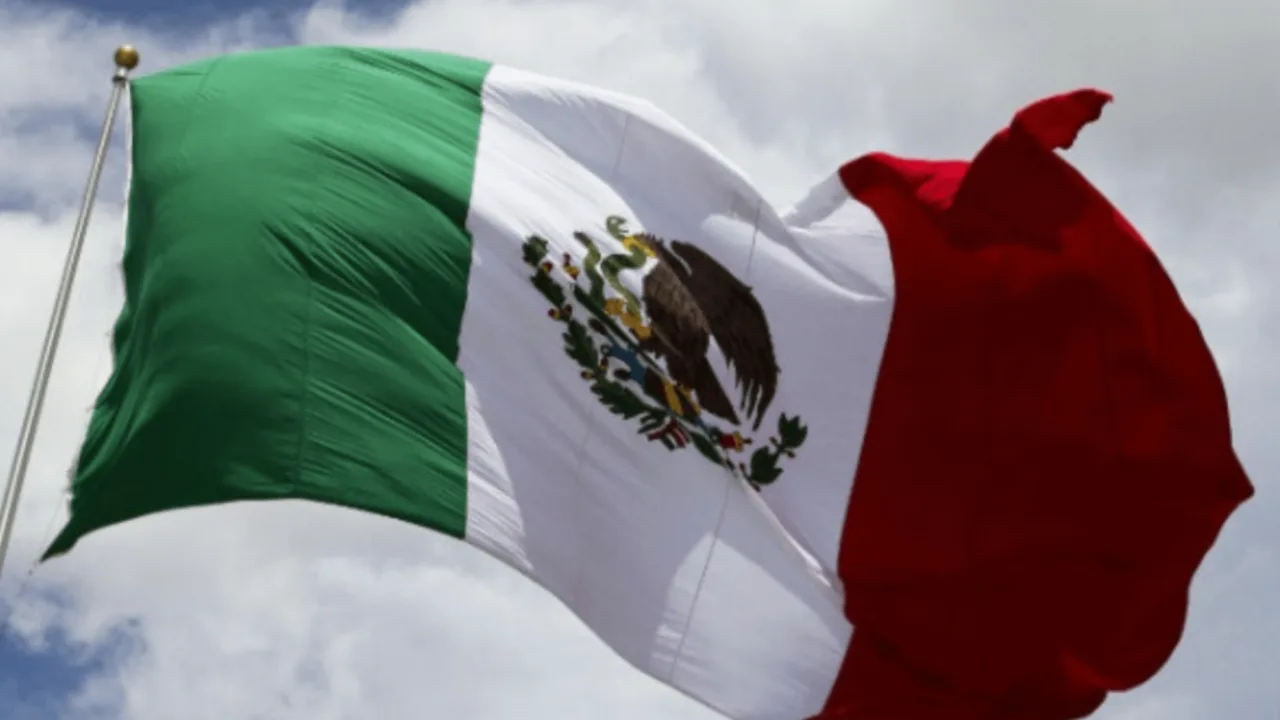
Mexico improved by one point in its rating and climbed to 141st place in the 2025 Corruption Perceptions Index (CPI) published Tuesday by the anti-corruption organization Transparency International, which gave the country a score of 27 out of 100.
The slight increase in score comes after Mexico recorded its lowest CPI result in history in 2024 during the final year of former President Andrés Manuel López Obrador’s term, also scoring 27 out of 100. The CPI is widely regarded as the main global measure of perceived public-sector corruption, where 0 represents high corruption and 100 denotes very low corruption.
Within the region, Mexico ranks above only Guatemala (26), Paraguay (24), Honduras (22), Haiti (16), Nicaragua (14) and Venezuela (10), but trails key economic peers such as Brazil (35) and Chile (63).
Among the 38 member countries of the Organisation for Economic Co-operation and Development (OECD), Mexico ranks last. In the G20 grouping, it sits in the penultimate position, ahead of only Russia. Experts say Mexico’s persistently low score reflects ongoing challenges in curbing corruption and protecting public funds.
Transparency International’s report also highlights structural corruption issues that have allowed organized crime to infiltrate politics and weaken governance, as well as risks to journalists covering corruption.
-

 International5 days ago
International5 days agoColombia to Send High-Level Delegation to Ecuador to Ease Trade Tensions
-

 Central America4 days ago
Central America4 days agoSalvadoran fans plan birthday surprise for Shakira at historic show
-

 Central America3 days ago
Central America3 days agoGuatemala isolates Barrio 18 leader after attacks that killed 11 police
-

 Sports4 days ago
Sports4 days agoShakira ignites El Salvador with near sold-out residency at Mágico González Stadium
-

 International1 day ago
International1 day agoU.S. Health Department says CDC grants no longer match agency priorities
-

 International23 hours ago
International23 hours agoICE Arrests Reach 379,000 Under Trump, Testimony Shows Amid Minnesota Shootings
-

 International24 hours ago
International24 hours agoDespite homicide drop, overall deadly violence remains high in Mexico: study
-

 International23 hours ago
International23 hours agoJet Fuel Crisis Hits Cuba: Flights Disrupted, Air Canada Cancels Services
-

 International23 hours ago
International23 hours agoSheinbaum Urges Mexico to ‘Jealously’ Guard Sovereignty at Air Force Anniversary
-

 International23 hours ago
International23 hours agoMEPs Approve Plan That Could Fast-Track Rejection of Some Asylum Claims
-

 International23 hours ago
International23 hours agoMexico Rises Slightly to 141st in Global Corruption Perceptions Index 2025
-

 International5 days ago
International5 days agoSuper Bowl Halftime Show Puts Bad Bunny—and Immigration Politics—Back in the Spotlight
-

 International23 hours ago
International23 hours agoChile Unveils Latam-GPT to Give Latin America Its Own AI Model





























